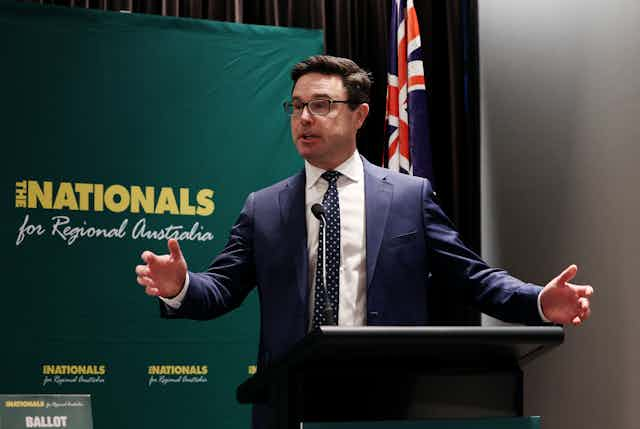David Littleproud runs his own race. In opposition he’s Nationals leader first and Coalitionist second. Thus he was quick out of the blocks criticising Scott Morrison’s power grab, and when Peter Dutton rejected an invitation to next week’s jobs and skills summit, Littleproud said he wanted to go.
In this Podcast Littleproud says about the government’s planned inquiry into Morrison’s actions: “I’m happy to work within whatever the constraints of what the government decides, that’s their prerogative. But it just seems to me this has now become an obsession of Anthony Albanese.”
Of the conflicting signals from the opposition about the jobs summit, Littleproud says: “We’re two separate parties. I represent the National Party and Peter Dutton represents the Liberal Party. He made a decision on behalf of the Liberal Party that he would not attend.”
He’s scathing that the Nationals were not originally invited. “The fact that this government didn’t even bother to ask anyone from regional and rural Australia to represent their interests was a failing to start with.”
Littleproud has stressed to his party the need to rebuild trust in the community, especially with women. “We’re going to do that at a grassroots level. "We’ve got to listen and understand”.
He is enthusiastic about the Coalition’s embrace of an examination of nuclear power. “I’m pleased to say that Peter Dutton has subsequently been able to get the Liberal Party to support that view. We’re not talking about big nuclear power plants across this country, we’re talking about the emerging technology of small scale modular technology for nuclear that’s appearing particularly in northern America.”
When asked which position is more difficult, being a senior minister with great responsibility or being leader of his party in opposition, Littleproud says: “I think obviously in opposition, because you’ve got to try and convince someone that holds the pen of the necessity of what you’re trying to prosecute”.

